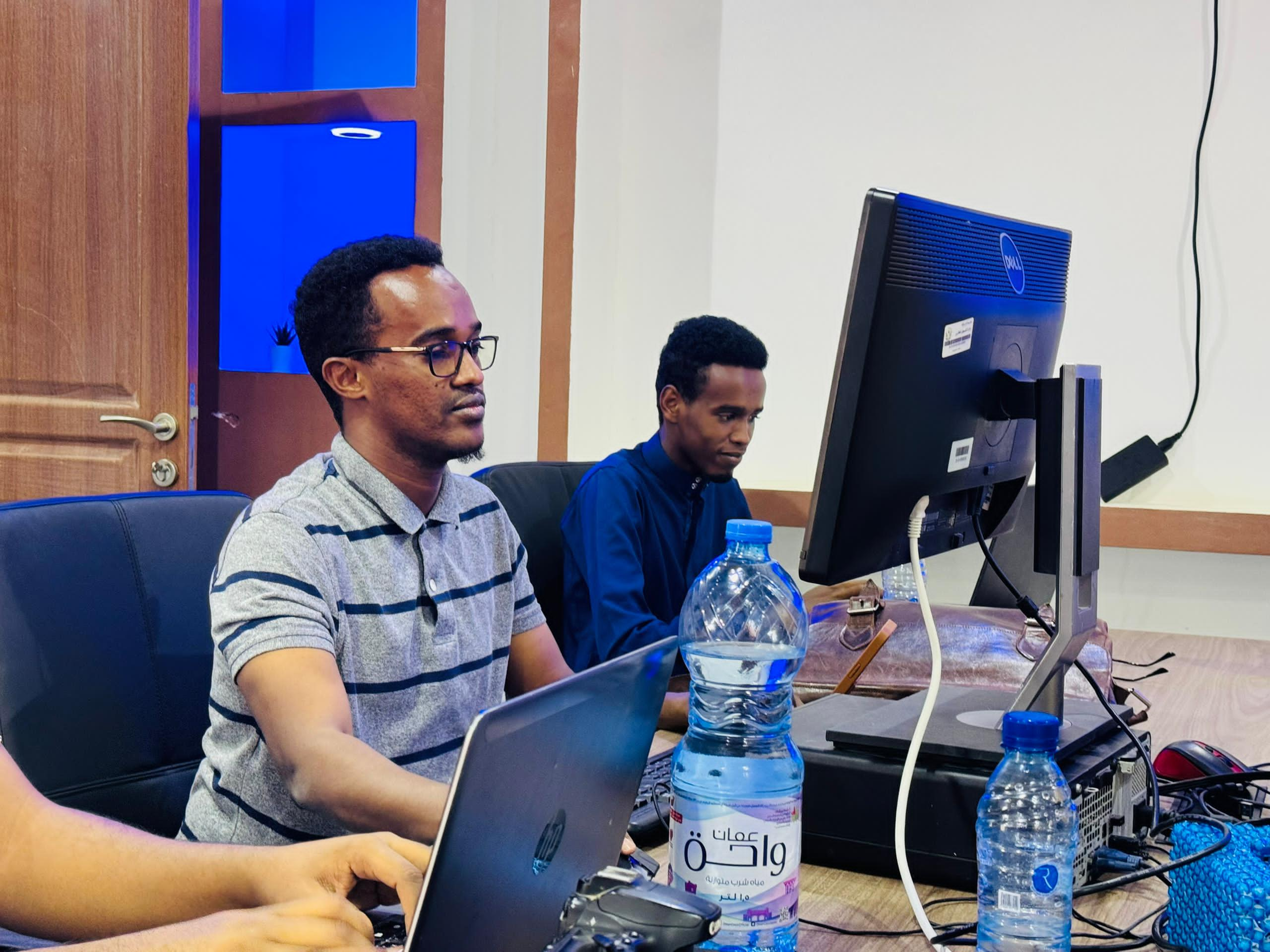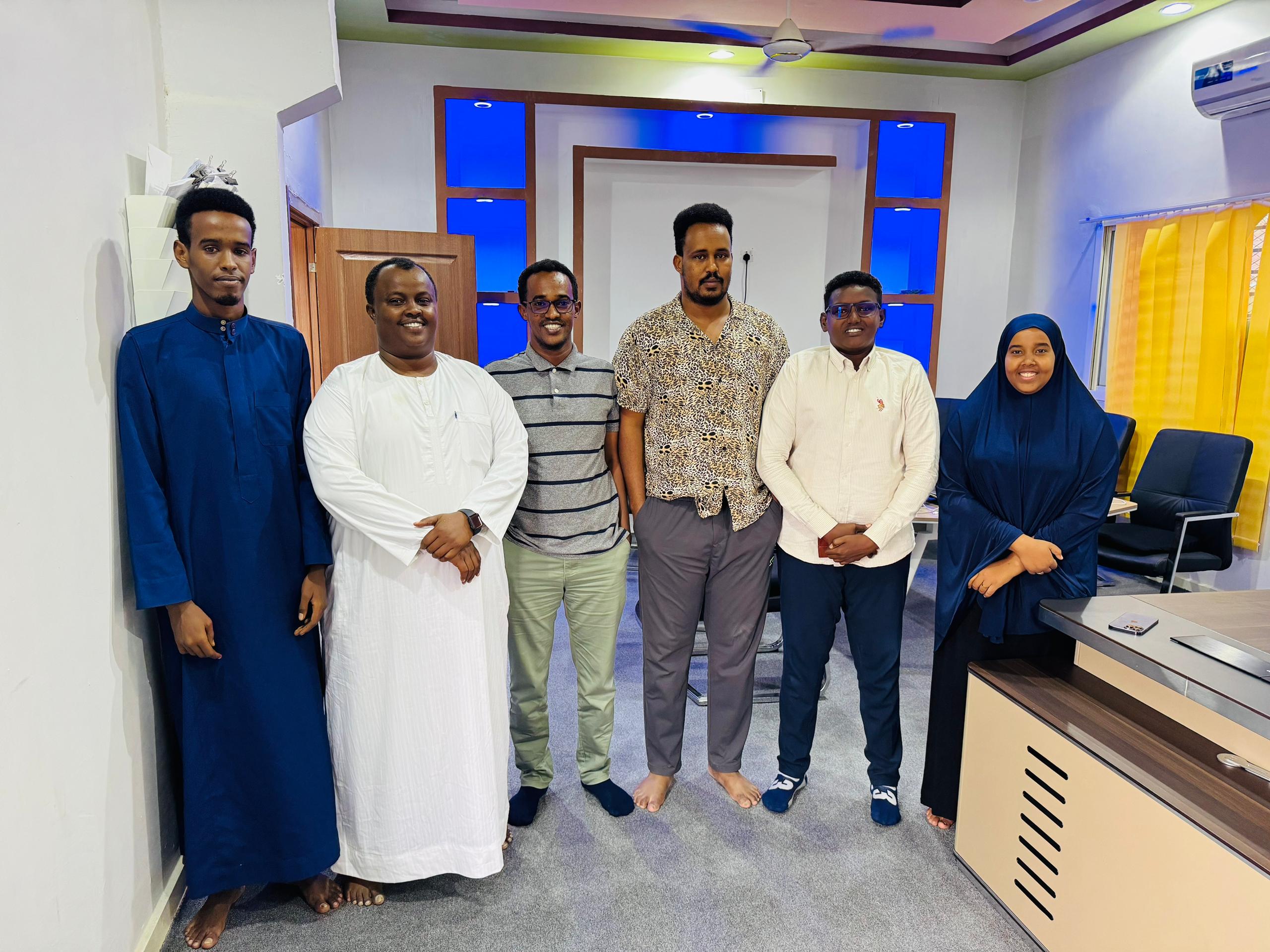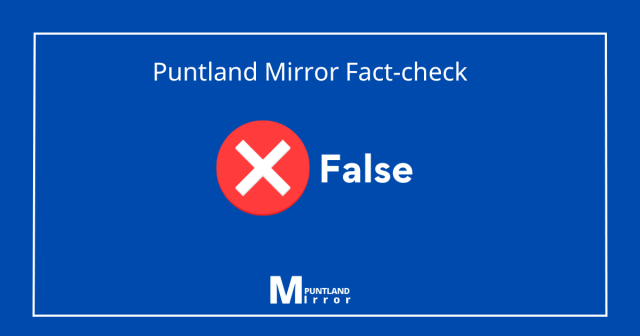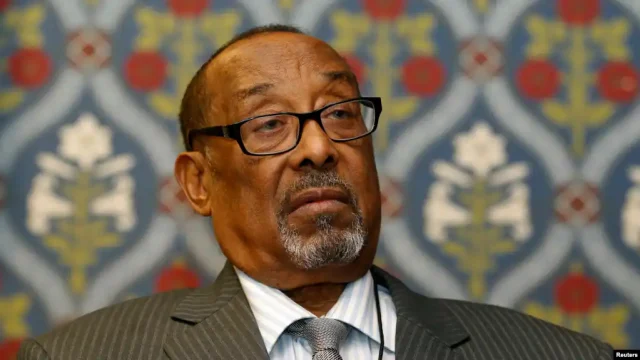It was an unprecedented opportunity for Puntland Mirror, a media outlet based in Garowe, Puntland, Somalia, founded in late 2014, to be selected as one of the media organizations for training in combating fake news in late May.
Before this training, Puntland Mirror did not have a dedicated verification or fact-checking desk due to various challenges, such as the need for skilled personnel and financial constraints.
“This was truly a crucial opportunity and training that came at the right time, which reflects our strong need for such a program,” said Abdi Omar Bile, Managing Editor of Puntland Mirror. “The interest and need we have for such training can be seen in how the Puntland Mirror team, especially the editors, regularly participated in the sessions, even when they had many other work responsibilities,” added Abdi Omar.
During the training, the Puntland Mirror team received various lessons on fact-checking as well as additional useful sessions for newsrooms, such as the use and adaptation of AI.
Establishment of the Puntland Mirror Fact-Checking Newsroom
Somalia, recovering from nearly 30 years of civil conflict and lacking a fully functional government, is overwhelmed by fake news, with major contributing factors including the rise of citizen journalism, declining media literacy, and the impact of social media platforms like Facebook, Twitter, and WhatsApp—highly used in Somalia for spreading unverified information due to the absence of strong verification systems.
The Code for Africa META incubation program helped Puntland Mirror establish a fact-checking division to investigate and verify false information, particularly those circulated on social media, which is now a major source of news for Somalis.

“In recent years, there has been a decline in traditional media outlets like radio, TV, and print media in Somalia, which used to be the primary sources of information, because technology has led people to get news from new media,” said Mohamed Omar Ahmed, Editor-in-Chief of Puntland Mirror.
New media plays a major role in the spread of fake news. New media, particularly social media and citizen journalism platforms, enable people to share information quickly, often without verifying its accuracy.
“Since most people are now connected to social media, it has led to many not realizing that they are getting false information from these platforms, due to factors such as a lack of information verification. Many rely on unreliable sources, reading news posted by anyone, while low media literacy prevents them from distinguishing between true and false information,” said Mohamed Omar.
“Despite these challenges, it was extremely important for us at Puntland Mirror to have a dedicated section for fact-checking fake information, and we are very grateful to Code for Africa for giving us this golden opportunity,” he added.
During the training, Puntland Mirror produced around 17 fact-checking articles, debunking various fake information and partial truths published on social media.
Sustaining Fact-Checking
The Puntland Mirror team is very hopeful about expanding their fact-checking section beyond its current capacity.

“We now have two crucial resources: skills and mechanisms that raise our hopes of continuing the fact-checking activities. The CFA project not only helped us build skills but also provided a small seed fund, enabling us to establish a fully equipped office dedicated to fact-checking,” said Abdi Omar Bile, Managing Editor of Puntland Mirror.
“We are now the only media outlet in Somalia with the capacity to conduct fact-checking and verification of fake information and produce evidence-based verified information, which boosts the trust of our audiences and the Somali people as a whole,” added Abdi.






